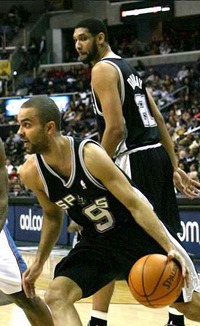- The importance of sales positions. “Most of my professional life has been spent in sales. It’s a great way to really learn everything you can about a company.” If you really want to learn a business, it is hard to beat a job in sales. I recommend starting in sales to my business students. Sales are central, foundational, at the core.
- Don’t grow your business faster than you can handle. “A lot of people make that mistake. They say, ‘Sure we can do that’ and then you can’t manage that from an operations perspective.” (DDN)
- Know what you are not good at and really work hard to learn it. Gary Ball, a two year interim president at Shumsky, described Anita Emoff as being very good at this. My $.02: Work hard to learn it if you need it. The hard part is good, honest feedback or monitoring of your own performance to realize you don’t know something, do not have the skill or knowledge needed. Listening to others openly, noncritically, active listening are keys to self-knowledge.
- “Believe in yourself . . . ” Echoes the need for leaders to be confident, a theme in Sheryl Sandberg’s Lean In. From an earlier blog: Trait research decades ago found confidence a key factor in leadership, be it the confidence to lead a large organization or confidence to lead a small team. Developing confidence, being confident, regardless of gender, is important to being an effective leader.
- “Don’t take shortcuts . . .” I grew up with my father saying, “If it’s worth doing, it is worth doing right”, a common saying. Excellence comes from attention to the details. Major disasters from inattention to small details are legend.
- “Understand the importance of hard work and trust”, “put in your blood, sweat, and tears.” Two themes here. The value of hard work, having the energy needed to achieve, the dedication. But also one word: “trust” – the bedrock of relationships and successful corporate cultures.
- Invest in people. “Employees shine the brightest if they are in the right position.” From Gary Ball in DDN, “Over two years she had people re-interview for positions within the company, not to replace them, but to find the right way to use their talents.” This echoes the NBA Spurs approach of player development, previous blog. If you are a manager, do you know your people? Do you really know their talents? My consulting and managerial experiences suggest this is often not the case. Why? In some organizational cultures, people are treated primarily as costs, not assets. In other situations, it seems there is simply no time. Nice to do but when do you do it? My suggestion over the years has been consistent: Find the time.
Hats off to Olivia Barrow, DBJ, and Thomas Gnau, DDN, for informative articles.
Barrow, O. (Feb 1, 2013). Multicultural Dayton: Anita Emoff, Boost Rewards. Dayton Business Journal (online).
Gnau, T. (Jun 2, 2013). Woman at top pushes quality. Dayton Daily News.




 RSS Feed
RSS Feed